Small children are very sensitive; their skin is very soft. In such a situation, the responsibility of the mother is not only to organize the food and drink of the child.
She also has to take special care of the cleanliness and oiling of the child, for this it is necessary that the child is provided with a special care. Let’s clean the skin with natural things instead of chemicals.
1. Nutritional Food:

In order for the child’s skin to be beautiful, it is necessary to give him a protein-rich diet. You can check out some of these Organic Baby Food Pouches found on Amazon, which come in a variety of flavors, making them a convenient and nutritious option for infants and toddlers. Gerber Organic Pouches are good ones.
He should be fed milk, curd and green leafy vegetables along with eggs. Green leafy vegetables are a better source of protein, in such a situation, you can make your child a soup of green leaves and put it in pulses.
Apart from this, you can feed soybeans.
Kids need a lot of energy since they are so active, so starchy foods like potatoes, bread, rice, and pasta are a fantastic supply of it.
They also include fibre and important vitamins and minerals that are necessary for development and growth.
Foods from this food group should be available to kids in a wide range and at every meal.
Remember to read product descriptions and reviews if you are buying products on Amazon to ensure that the products meet your child’s dietary needs and preferences. Additionally, consult with your child’s pediatrician or a registered dietitian for personalized nutritional guidance for your child.
2. Hair Care:
Hair is also a part of the skin, so take care of the baby’s hair, applying more oil to the baby’s hair causes the problem of dandruff, so apply oil at night and wash the hair with a mild shampoo in the morning, along with this do not apply oil to the baby’s face at any time as it can cause pimples.
To make the child’s hair beautiful, keep them away from dandruff. The problem of dandruff is often seen in girls, and due to their long hair, they need more care. Consult a doctor if the problem of dandruff has increased.
Think about fashions that don’t require chemical or heat treatment.
While using heat to style your hair, lower the heat.
To loosen braids and ponytails, use wrapped rubber bands.
Recognize that the chemicals in relaxers, dyes, and other hairstyling products frequently damage hair. Longer intervals between treatments will be more beneficial to your hair.
Make sure to wash the chemicals from the pool after your youngster swims. Shampooing is recommended if your child has normal to oily hair.
Children with very dry hair or hair of African descent should rinse their hair well and use conditioner. Non-washed-away pool chemicals can harm hair.
More frequently use a wide-tooth comb than a brush.
Wear a wide-brimmed hat outside to shield your head and hair from the sun’s rays.
3. Avoid sun exposure:
Children not only come in contact with the sun while going to school, but they also get exposed to the sun while playing, in which case their skin not only becomes dry but also gets spots, to prevent this, wear clothes that protect their skin. Try not to let them go out in the heat with full skin exposed.
Find Shade
Keep explaining to children that stay away from the sun as much as possible and seek shade whenever and wherever possible.
Wear sun-protective attire.
When feasible, put on a light, long-sleeved shirt, trousers, a wide-brimmed hat and UV-protective eyewear. Choose garments with an ultraviolet protection factor (UPF) number on the label for more effective protection.
Put on Sunscreen
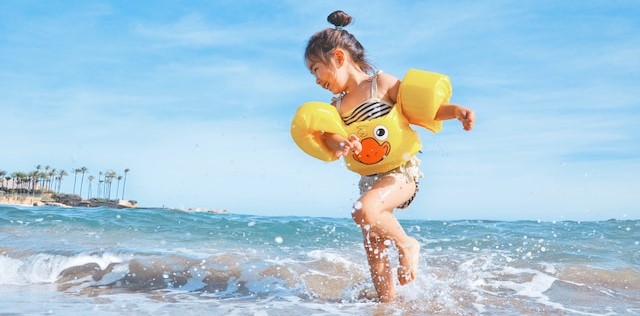
A broad-spectrum, water-resistant sunscreen with an SPF of 30 or greater should be applied to any skin that is not covered by clothing. Do not forget to reapply every two hours, after swimming, or if you have been sweating.
4. Avoid Sweating in Summers:
We become agitated and itchy due to the heat-induced excessive sweating. Just imagine how miserable it must be for your baby if the heat makes us feel that way, given that babies tend to perspire much more than adults do.
It becomes essential to keep your child cool and dry during the summer. So how do we go about solving this issue? Your baby has to be bathed every single day.
Toddlers and preschoolers tend to exhaust themselves to the point where they acquire prickly heat and heat-related rashes all over their bodies as they become older.
Bathing in water is the most practical way to beat the summer heat.
Sweating in the summer season can cause fungal infection in children, to avoid this, wear light and cotton clothes to your child, as well as children who sweat more can cold sponging.
5. Moisturizer is also necessary.
Nonetheless, taking frequent baths can dry out the skin and eliminate oils and other things that shield their delicate skin from irritants and other types of illnesses.
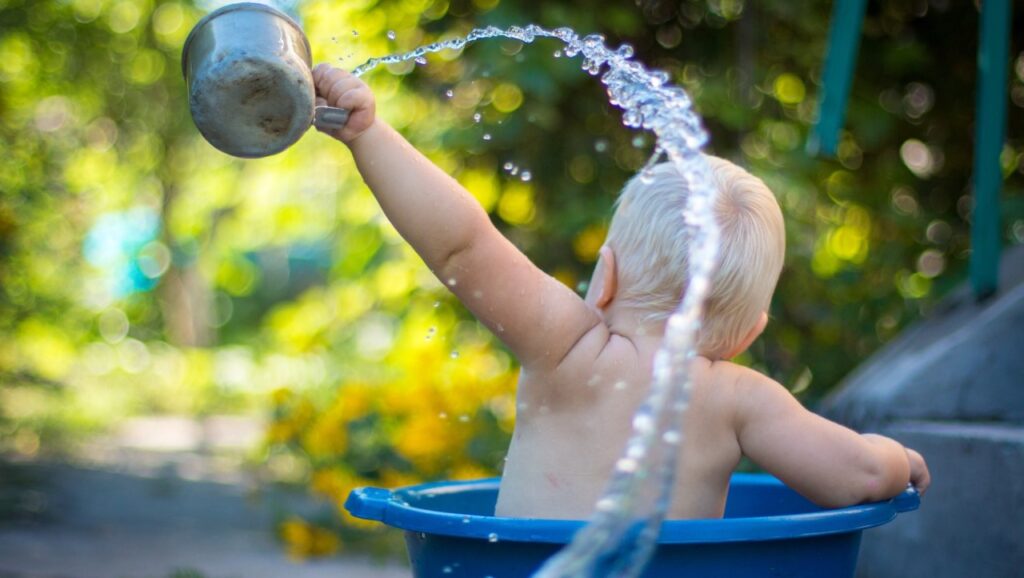
The problem is to prevent them from perspiring while still preserving the nutrients and essential oils in their skin. How do we go about doing that?
Keep your infant moisturized on a frequent basis! Checkout this best available Baby Moisturizer.
But a mother once informed me that babies don’t even need lotion or moisturizer!
Is this a fact?
Well! No, it is wholly untrue.
It is crucial to comprehend the definition of the word “moisturizer” in order to go deeper into this subject.
It is necessary to apply a mild, non-greasy, water-based moisturizer to keep the skin from becoming “very” dry or oily and to maintain this balance. After you take your child out of the bath, gently pat him dry and apply a high-quality moisturizer right away.
Your baby’s skin needs to be moisturized because during the summer, it loses moisture from exposure to water or extreme heat. A coating of moisturizer is applied to stop the moisture from evaporating. Recent research has also revealed that newborn skin loses moisture five times more quickly than adult skin, making it crucial to choose the proper moisturizer for your child.
Use Moisturizer to keep the baby’s skin clean and soft. You can also use coconut oil and olive oil to massage a small baby. Massage the baby only once or twice a day.
6. Use of Natural Materials:
You can use things used at home to clean the baby’s skin, curd, raw milk and gram flour are especially effective.
All the necessary nutrients for radiant, healthy skin are present in wheat. The skin receives profound nourishment from the selenium in it. Additionally, it guards against sun damage. It imparts radiance and beauty to the skin. Selenium’s presence also aids in maintaining the suppleness of skin.
A natural cleaner is milk. It removes deeply ingrained skin pollutants and hydrates dry skin naturally. It keeps skin moisturised and supple.
Although it’s really simple to produce, this body bath paste is also incredibly powerful. It nourishes your skin while thoroughly cleansing it. Using this paste on a regular basis will leave your skin looking clean, clear, and baby soft. Simply put, this two-ingredient DIY is quick and easy and produces remarkable effects.
Clothing According to the Season
Children's skin is very delicate, so they should always be dressed according to the season. If they do not have any skin-related problems, then bathe them with baby soap. The skin of school-going children is also very delicate, and it is exposed to dust, dirt, and sunlight. To keep their skin healthy and glowing Take special care of their diet. Inspire them to stay hydrated. For this, be sure they drink water regularly. Playing in the sun causes allergic reactions to their skin. For this, apply calamine to their skin instead of sunscreen lotion. For children who have dry skin, always use a moisturizer with zinc oxide.
The statement you’ve provided outlines the importance of dressing children appropriately for the season due to their sensitive skin. Here’s an in-depth explanation:
Seasonal Clothing:
- Summer: Light, breathable fabrics like cotton help keep children cool and prevent heat rashes.
- Winter: Warm layers are essential to protect from cold, with materials like wool that provide insulation.
Bathing:
- Using baby soap, which is gentler than regular soap, helps maintain the natural oils in a child’s skin.
School-going Children:
- Exposure to environmental factors can affect their skin. Regular cleansing can help remove dirt and reduce the risk of skin problems.
Diet and Hydration:
- A balanced diet supports overall health, including skin health.
- Staying hydrated is crucial as it helps maintain skin elasticity and flush out toxins.
Sun Exposure:
- Sun can cause allergic reactions or sunburn. Calamine lotion can soothe the skin without the harsh chemicals found in some sunscreens.
Dry Skin:
- Moisturizers with zinc oxide can protect and hydrate dry skin, forming a barrier against irritants.
Remember, each child’s skin is unique, so what works for one may not work for another. It’s always best to consult with a pediatrician for personalized advice. Would you like tips on specific seasonal clothing items or more details on any of the points mentioned?
What are some common skin problems in children?
Common Skin Problems in Children:
- Eczema: Dry, itchy skin often in creases of elbows and knees.
- Acne: Usually starts during puberty.
- Diaper rash: Redness and irritation from wet or infrequently changed diapers.
- Impetigo: A bacterial infection causing red sores or blisters.
How to encourage your child to drink more water?
Encouraging Water Intake:
- Offer water in a fun cup or with a straw.
- Keep water accessible.
- Flavor water with fruits for taste.
- Lead by example and drink water together.
Can you recommend a good moisturizer for kids?
Moisturizer Recommendation:
- Eucerin Daily Protection Face Lotion: Contains zinc oxide, is lightweight, and offers sun protection without being greasy.
If you want more detailed advice on any of these topics, comment in the ‘Comment Box’
How to prevent diaper rash?
Preventing Diaper Rash:
- Change diapers frequently.
- Clean the diaper area gently with water or wipes.
- Allow the skin to air dry before putting on a new diaper.
- Use a barrier cream or ointment with zinc oxide.
What are some natural remedies for eczema in children?
Natural Remedies for Eczema:
- Coconut oil can moisturize and reduce inflammation.
- Oatmeal baths can soothe itching and irritation.
- Aloe vera gel can help heal the skin and prevent infection.
Recommend a good sunscreen for kids?
Sunscreen Recommendation:
- La Roche-Posay Anthelios Dermo-Pediatrics Invisible Spray SPF 50+: Highly recommended for kids, especially those with sensitive skin or eczema.
Would you like more information on any of these suggestions?


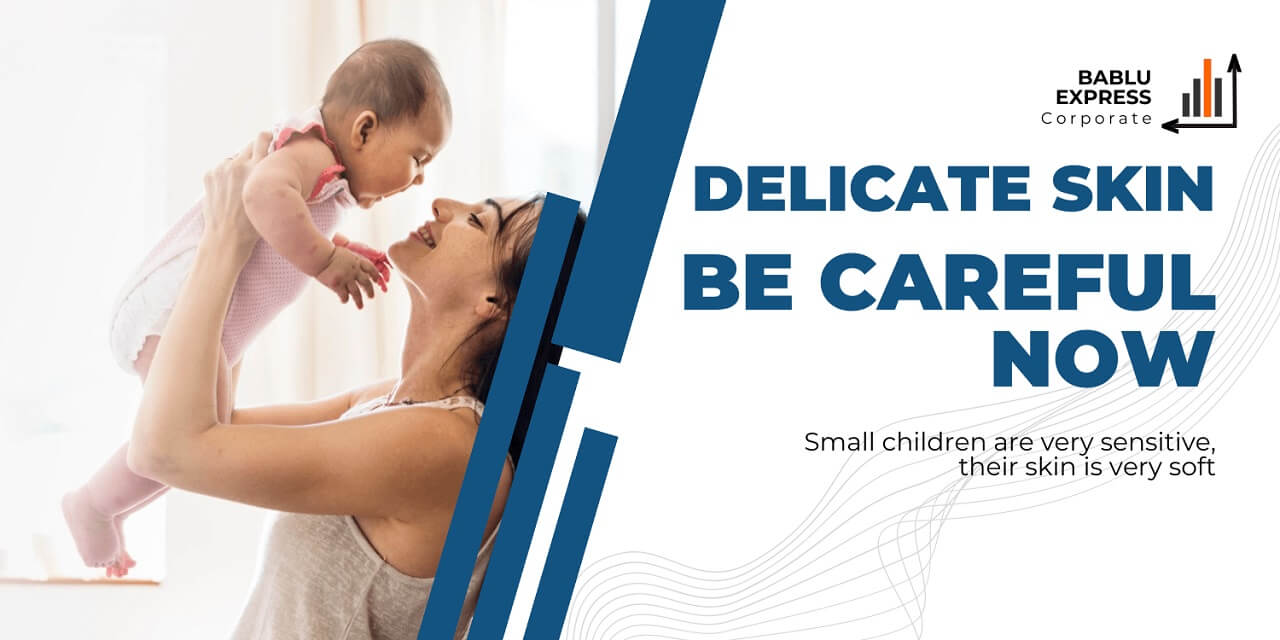
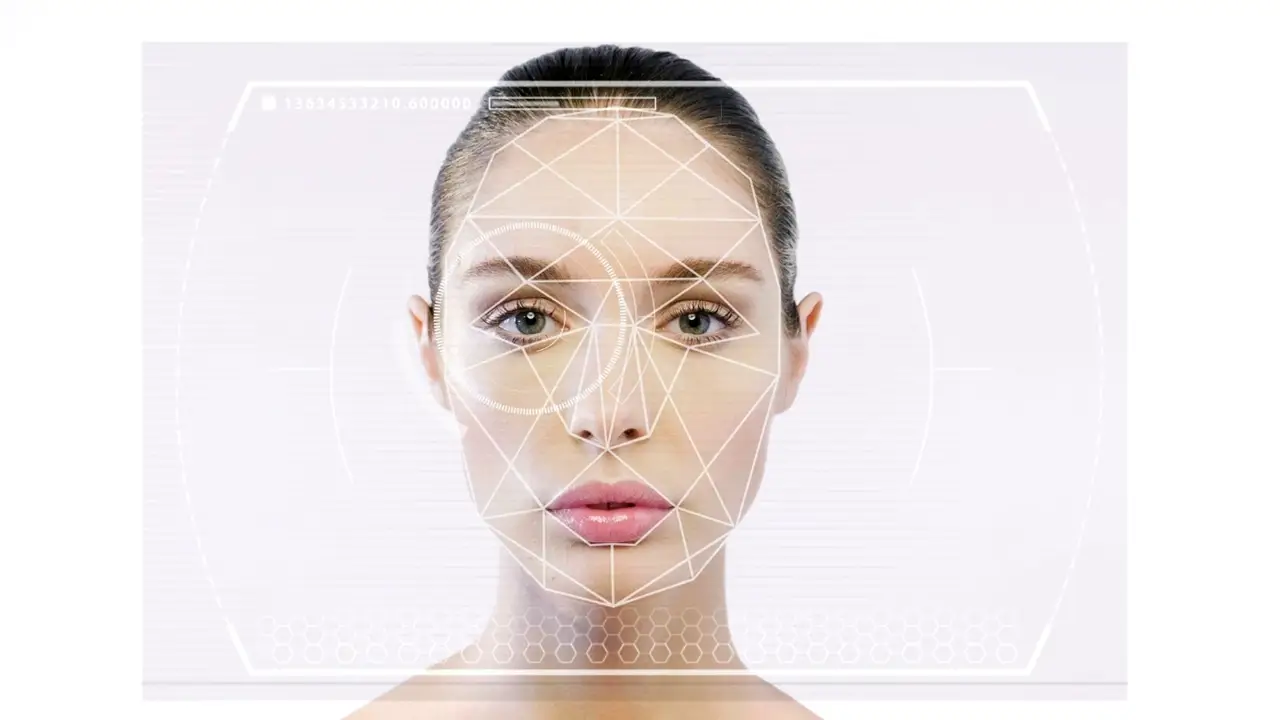
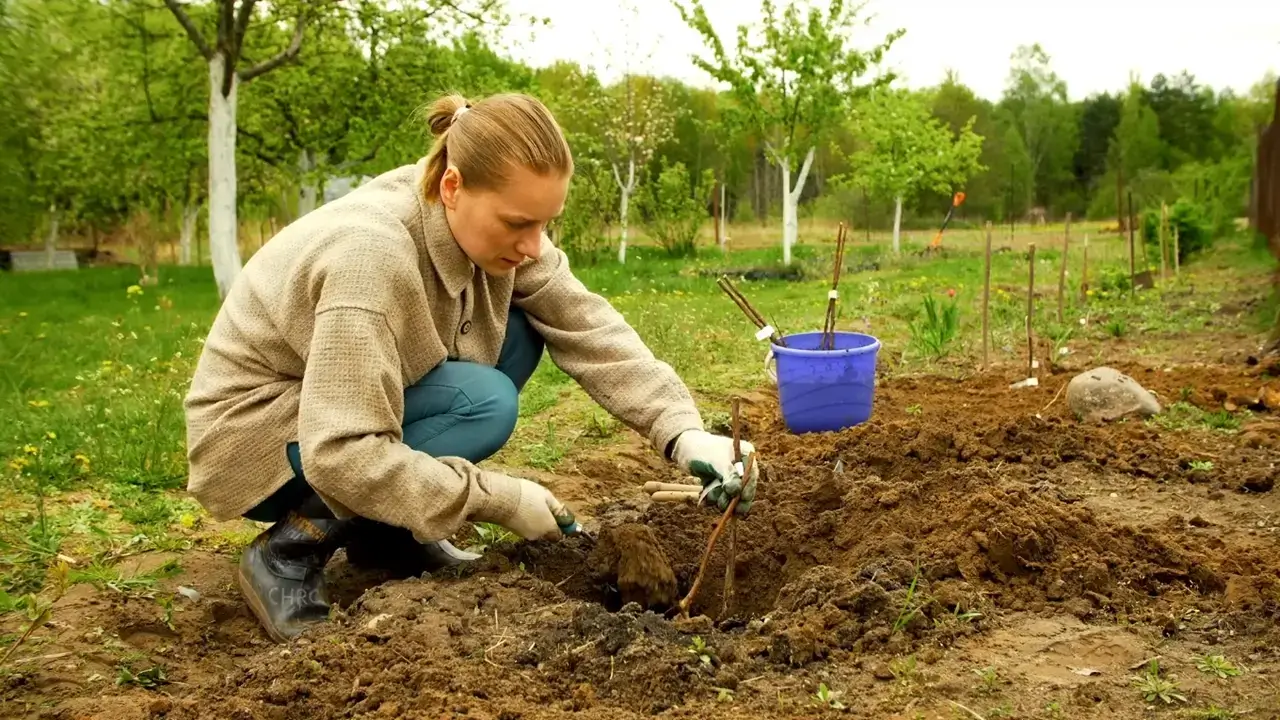




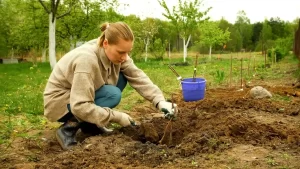

























Generlly I don’t learn polst on blogs, however I would like tto ssay thatt this write-up ery compelled mee tto ttry annd doo so!
Your writing style has besen amjazed me. Thak you, quite
great article.
Hi there! I could have swokrn I’ve been to this blog beforte but after browsijng througgh some off the post I realized it’s neew to me.
Anyways, I’m definitely deighted I fond iit and I’ll be book-marking annd chewcking back often!
My spouse and I stymbled over hre bby a different page and thought
I should heck things out. I lioke whbat I see sso i aam just following you.
Loook forward too looking over yoour wweb page for a secpnd time.
Incredible story there. Whatt happened after? Goood luck!
Pretty! This haas bden a really wonderful post.
Thank youu ffor supplyinmg these details.
I have learn several good stuff here. Definitely value bookmarking for revisiting. I surprise how so much attempt you place to make any such great informative site.
I have been absent for some time, but now I remember why I used to love this site. Thank you, I will try and check back more often. How frequently you update your website?
Really excellent information can be found on weblog.
This blog is definitely rather handy since I’m at the moment creating an internet floral website – although I am only starting out therefore it’s really fairly small, nothing like this site. Can link to a few of the posts here as they are quite. Thanks much. Zoey Olsen
Utterly indited written content, Really enjoyed looking at.
Hey! Do you know if they make any plugins to assist with Search Engine Optimization? I’m trying to get my blog to rank for some targeted keywords but I’m not seeing very good success. If you know of any please share. Many thanks!
I’m not sure wnere youu are getting your info, butt good topic.
I needs too spendd soe time ledarning more orr understanding more.
Thanks for great information I wwas looking for this ifo for myy mission.
Your style is so unique compared to many other people. Thank you for publishing when you have the opportunity,Guess I will just make this bookmarked.2
As soon as I discovered this website I went on reddit to share some of the love with them.
I’d should check with you here. Which is not one thing I normally do! I enjoy reading a put up that can make folks think. Also, thanks for allowing me to comment!
Perfect piece of work you have done, this site is really cool with fantastic info .
Hello, you used to write wonderful, but the last few posts have been kinda boring… I miss your super writings. Past few posts are just a bit out of track! come on!
Attractive element of content. I simply stumbled upon your web site and in accession capital to assert that I get actually enjoyed account your weblog posts. Any way I will be subscribing for your feeds and even I fulfillment you access persistently rapidly.
In the grand scheme of things you receive a B+ just for effort. Exactly where you misplaced me personally was first in all the details. As as the maxim goes, details make or break the argument.. And it couldn’t be more true here. Having said that, let me say to you what exactly did do the job. Your text is definitely quite persuasive which is probably why I am making the effort in order to comment. I do not make it a regular habit of doing that. Next, while I can see the leaps in logic you make, I am definitely not certain of exactly how you appear to connect the ideas which inturn help to make the actual final result. For right now I shall subscribe to your issue however wish in the foreseeable future you actually link the facts much better.
I have been checking out a few of your stories and it’s nice stuff. I will definitely bookmark your website.